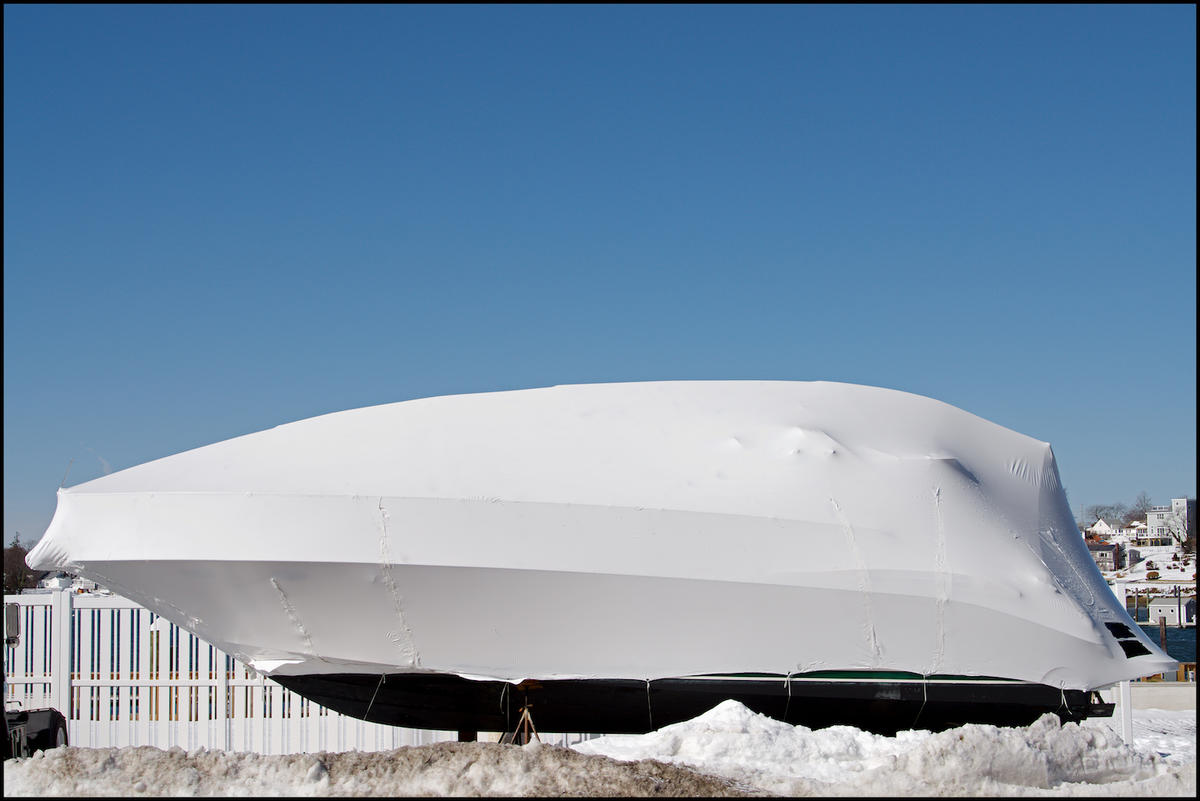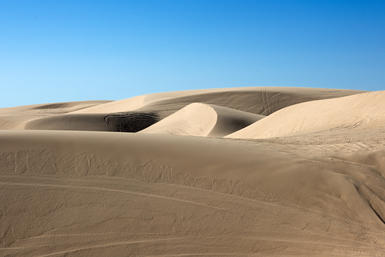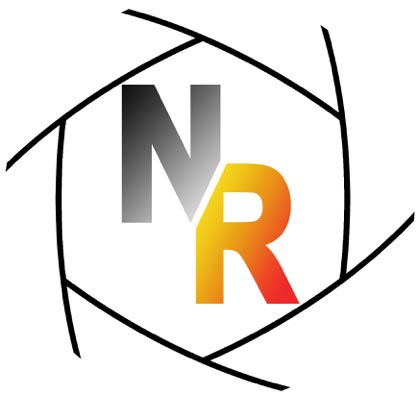Project: photographs made into a portfolio, a show or a book. A project can be made quickly; over an hour, a month, a year, years, or even a whole career.
In my own work I've made projects or series in a few hours, walking around a place photographing. But there also are ones that took longer, a few months or a few years. My work called Wheat is a project I started in 1996 and continues still, 21 years later.
A new winter project, begun in December, has taken longer than I thought it would and now fits into the "several months" category. I am in the phase now where I can see that this project called ShrinkWrapped will end soon.
This blog and the next are going to be about the anatomy of a project, an effort to get inside the creative process, in this case mine, as it unfolds to make a new body of work. I am sharing with you what has and is happening as it takes place. I will try not to make strong value judgments, and urge you not to as well, as that is not the issue. You and I will be a passenger on this ride as I work through a new body of photographs, what transpires through these projects I make. Perhaps we can find a few things in here we have in common. I hope so.
Let's go through the progression. If you look at the Wheat pictures on my site, or Salt Lake, or Kudzu or the Dunes pictures from 2012 and 2013 you can see a prevalence of abstraction of form, of decontextualizing. With the project I am working on now, I had felt for a while that photographs of plastic wrapped boats in storage for the winter months might be worthwhile. I didn't know, of course, as I hadn't pointed a camera at them yet. This is the phase of a project that is just thoughts, wondering, questioning, supposing, but not knowing. Of course, many ideas for projects never get farther than that. This is standard teacher to student stuff as well. This "epiphany" students would have, where they thought they'd come up with a great idea.They would show up at my office all excited to tell me about this great group of pictures they were going to make. I'd listen to their idea, this brilliant plan they had and then ask, "Do you have any pictures to show me?" They would answer, "Well no, not yet but I..." I would then kick them out of my office saying go make some pictures and show me next week. Ideas are cheap, but a physical thing, taking an idea and actualizing it into some pictures? Priceless.
So, I took a day in January. It was cold but not brutal. I drove to Gloucester on the North Shore, about an hour away. I needed a boat yard, one that stored shrink wrapped boats in the winter. I don't know much about boats as they are not part of my world. But I found a boat yard, filled with boats covered in plastic, and asked at the front desk for permission to photograph. I was taken to see the manager who said yes without a second thought. No questions asked. Perfect. I went back to the car thinking logistics: what lens? iso? tripod? aperture? access? exposure? background? There are always questions at this stage. I made some decisions, loaded up and headed out, looking. Made my first picture...
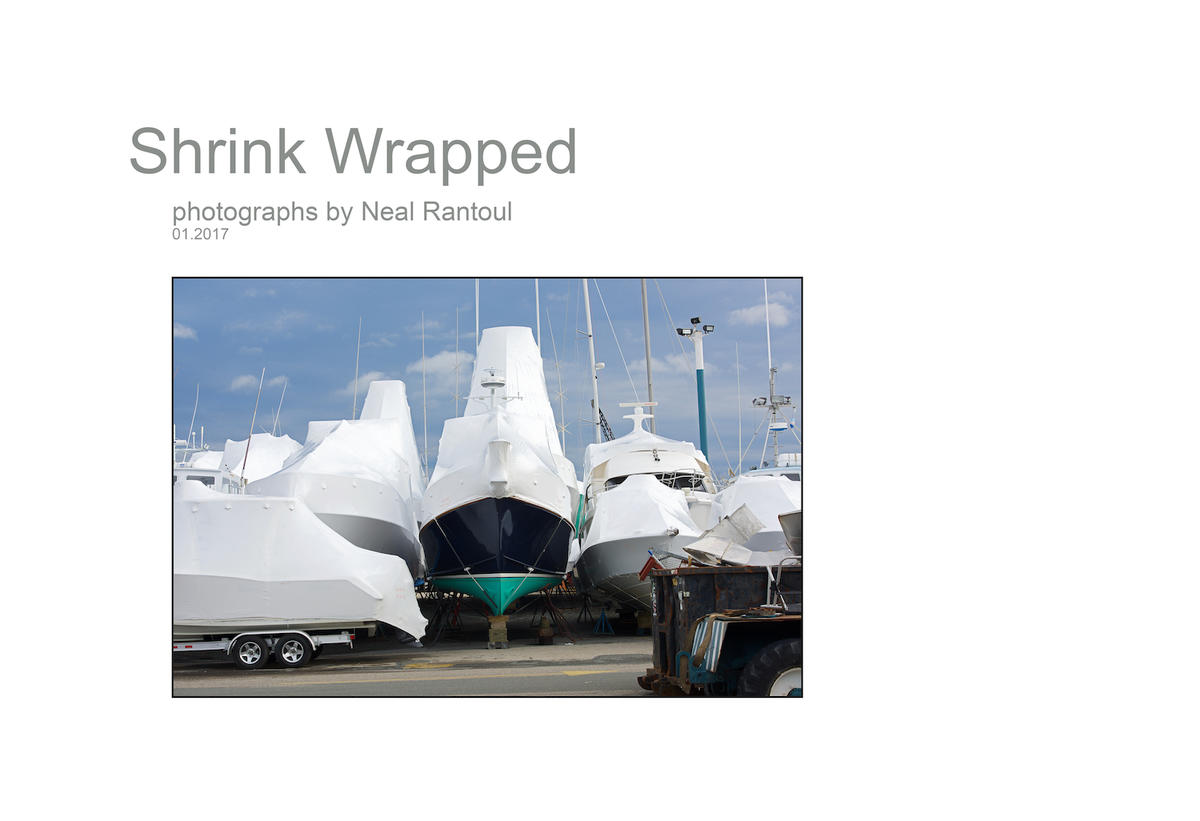
which ended up being the portfolio's title page. A kind of survey to what was contained inside, an overview only, there just to place us in a boat yard.
This phase, this exploratory thing we do, probing, wandering, not knowing what's around the corner, what's next, with no clue what we're doing yet, taking a picture, questioning how it's going to turn out or what it will look like, is always a special time. Are we on the brink of some major discovery? Some way of making photographs that is new and fresh? Or is what is there nothing, nothing that holds attention or that somehow it is all wrong? Return another time? A different day? On your next trip? Or perhaps it came across as a bad idea poorly executed? It is humbling, really, how easy it is to make bad pictures or the inverse, how impossible it is to make really good ones.
But here in this boat yard in Gloucester that day it seemed fine to me, particularly as this was the first day. I found I was pointing up a lot, being on the ground with these boats way high up in the air, sitting there held up by cradles. Let's be clear this is not a "boats" project. I didn't care much about their hulls, exposed as they were but the white shrink wrapped plastic installed from just below their decks all the way up through to the tops of their wheel houses were something else. Through the camera, in isolation, they looked like snow covered mountains to me. Some of the pictures I made that day:
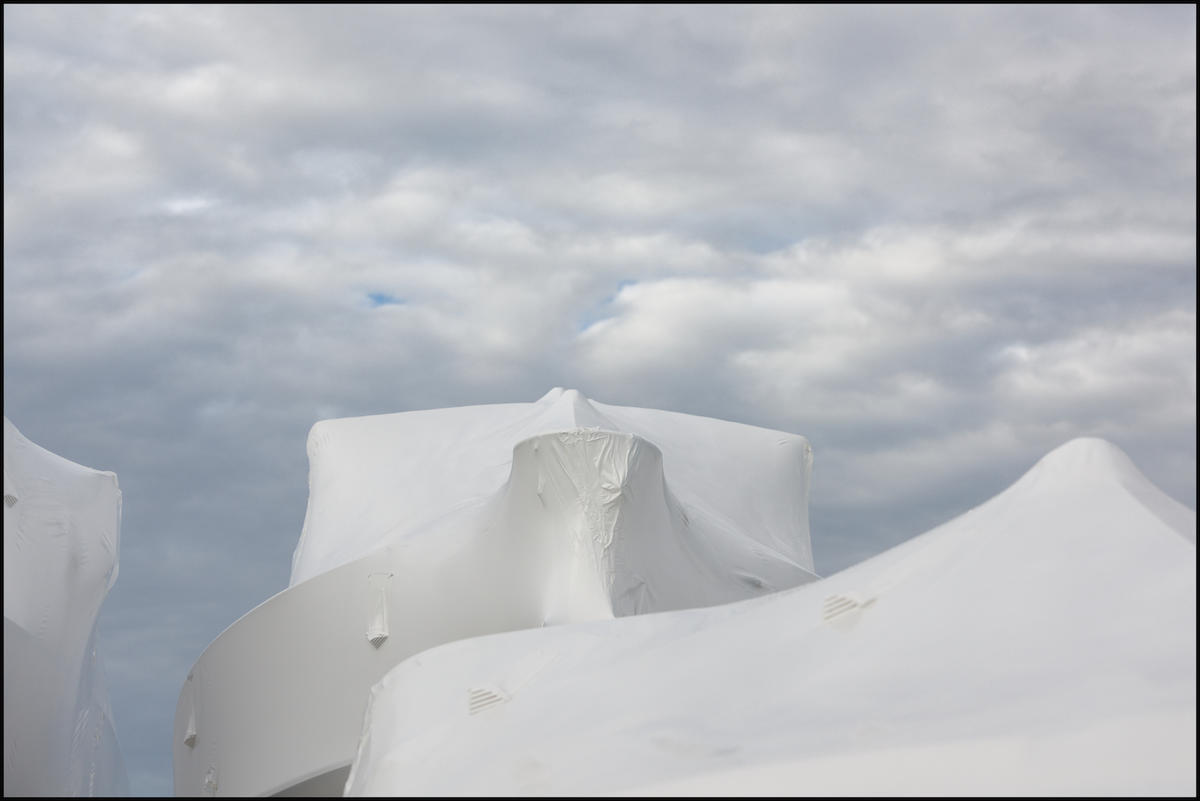
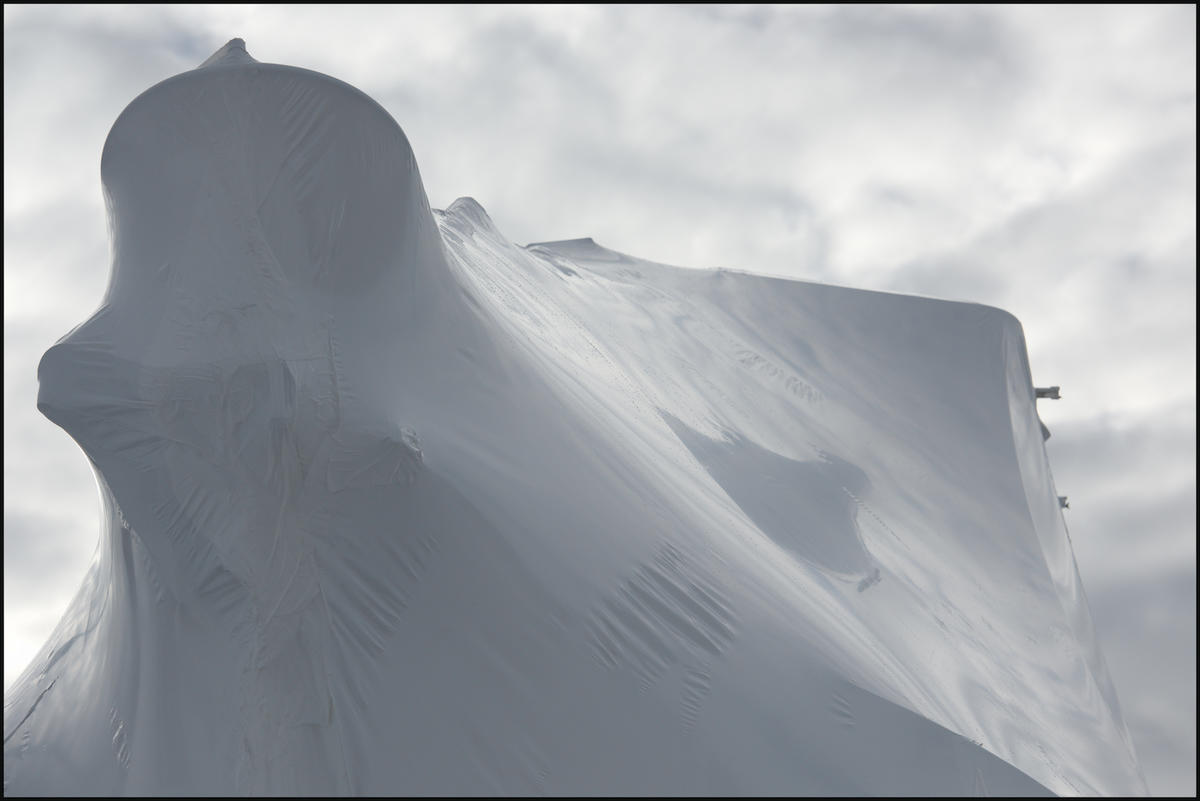
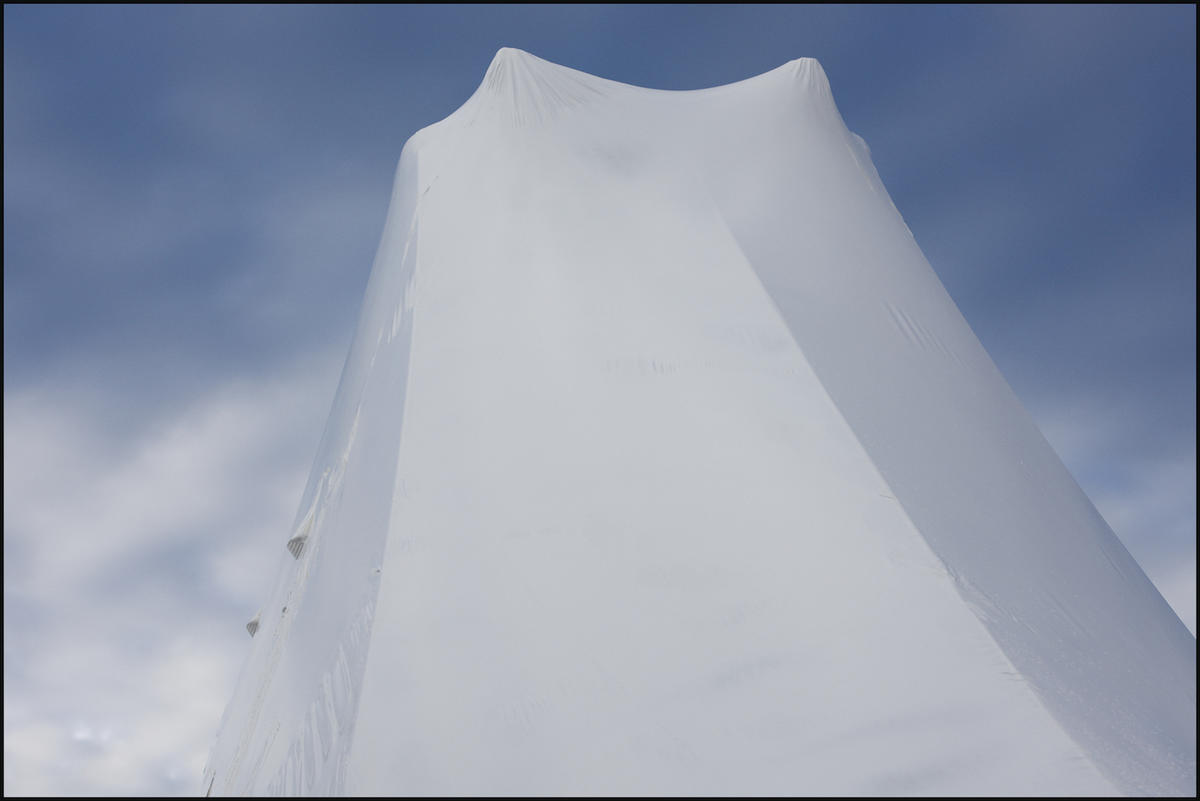
Shapes and form. For the most part I am not very interested in where they are, these huge things sitting heavy on the ground. But they do seem to fly or take on blimp-like form when put up against the sky. This was getting interesting.
I also took a few minutes to watch a crew unrolling sheet plastic, draping it over a boat, trimming it and then hitting it with a gas powered heat gun to shrink it tight around the form of the boat.
Then I made a discovery. If I walked between the boats, many pressed up against each other in places, this world became one of white on white, a blizzard of shrink wrapped white plastic stretched around the shape of the boats. Most odd and quite wonderful:
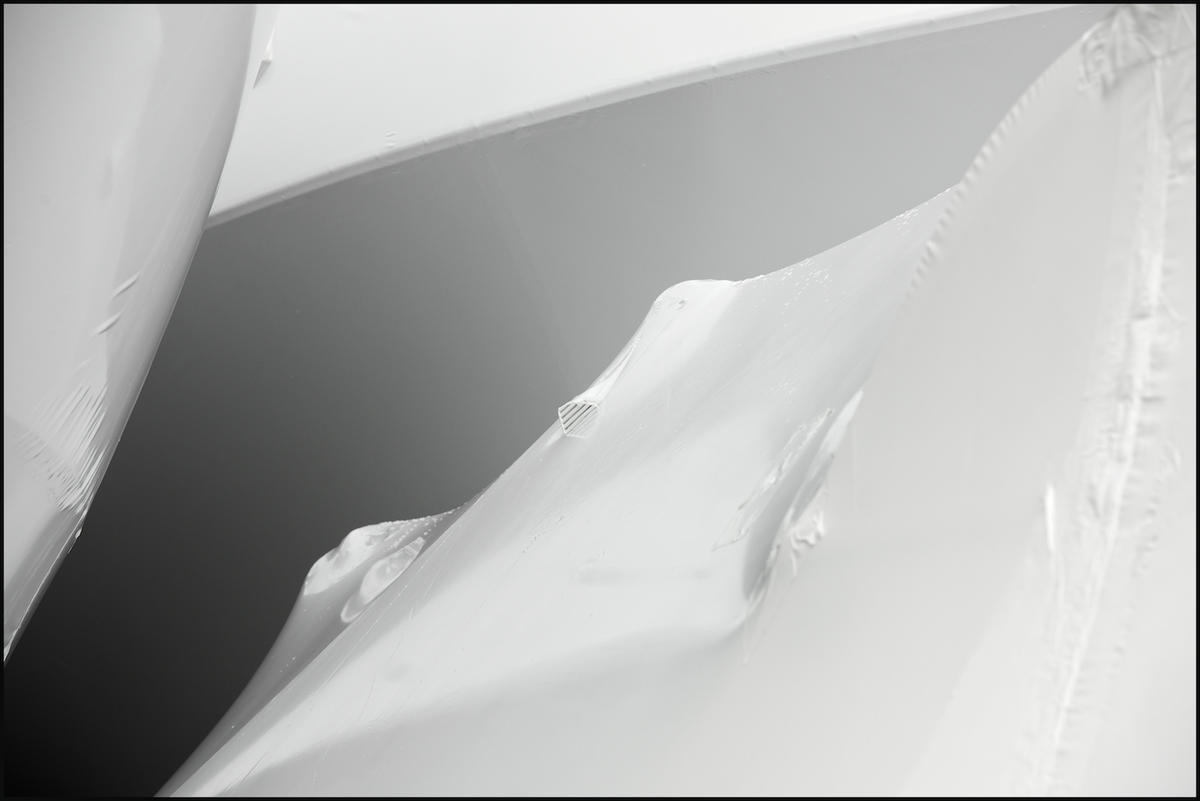
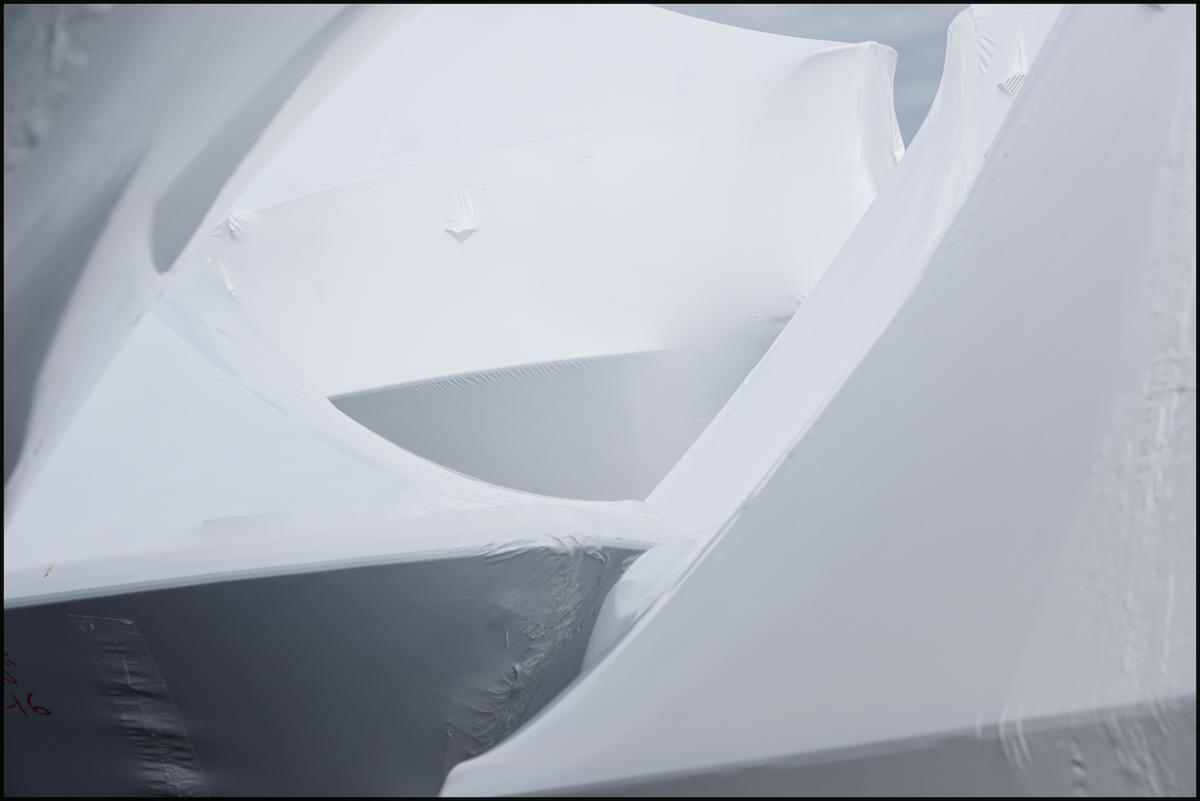
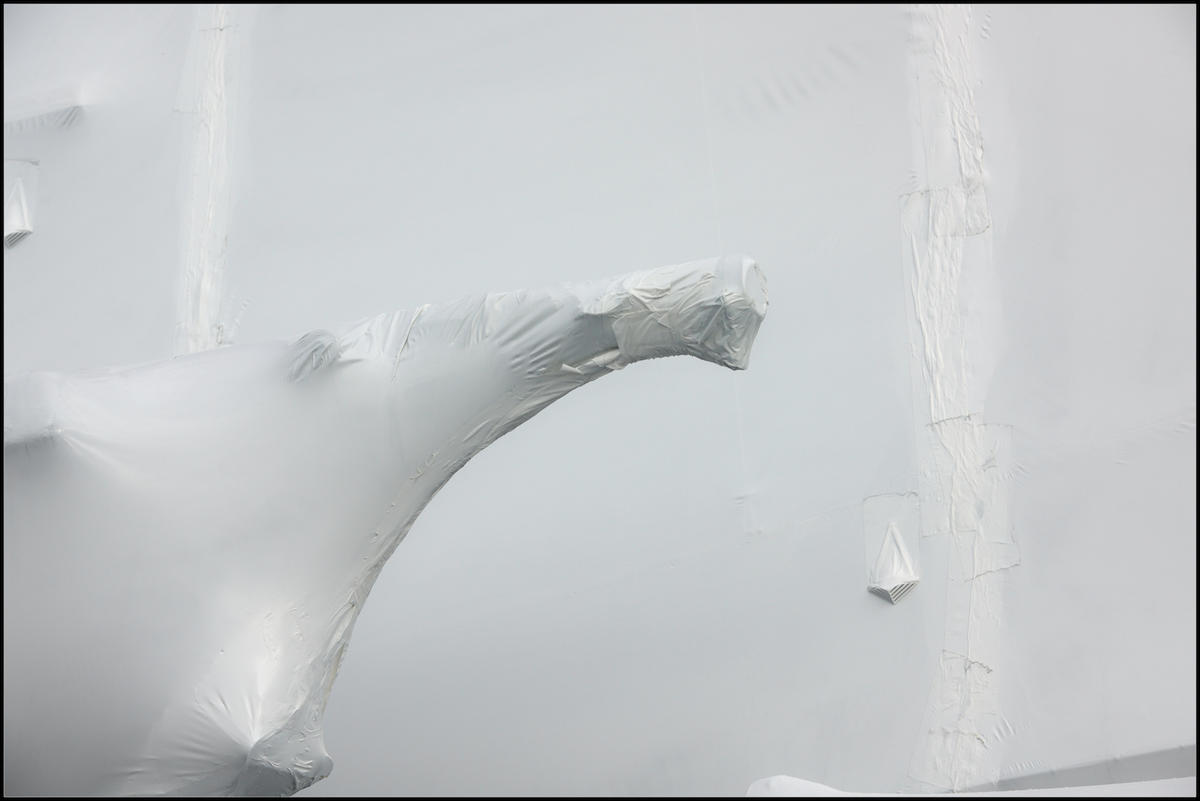
Now I was getting somewhere. I seem to have a pervasive need to abstract things, to isolate and take out of context. This was the engine that drove what I did that day in Gloucester, to get right up in these shapes, to take them out of their surroundings, the function of protecting the boats, this practical requirement to wrap these costly things with sheets of white plastic.
What a pleasure.
I left that day knowing now that I had a hold of something, excited at what I would find when I opened up these files back home.
I also left that day with many questions. Had I started and finished a project? Or maybe just begun? Had I done well, or was my approach wrong or misguided? It is something if you think about it, this illusive thing we deal with, this effort to make art, some of us throughout our whole careers. After all this time, all these years of working weekly and daily, looking through a lens on the world, that we still don't know what will come out, what might surprise us, what will last and what won't. It is sobering to find that we know so little.
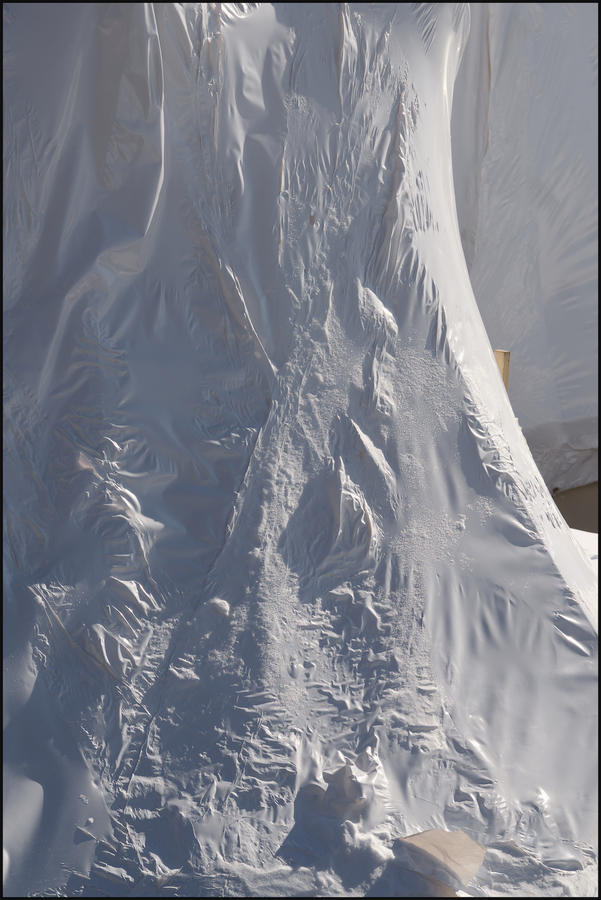
Coming up next, Shrink Wrapped 2, as I find I am not done at all, as I learn getting above the boats isn't what I thought it would be, as I learn that it is challenging to shoot white on white, where I find transparency, as things get very strange indeed and where I find substance in pragmatic forms.
Stay tuned.
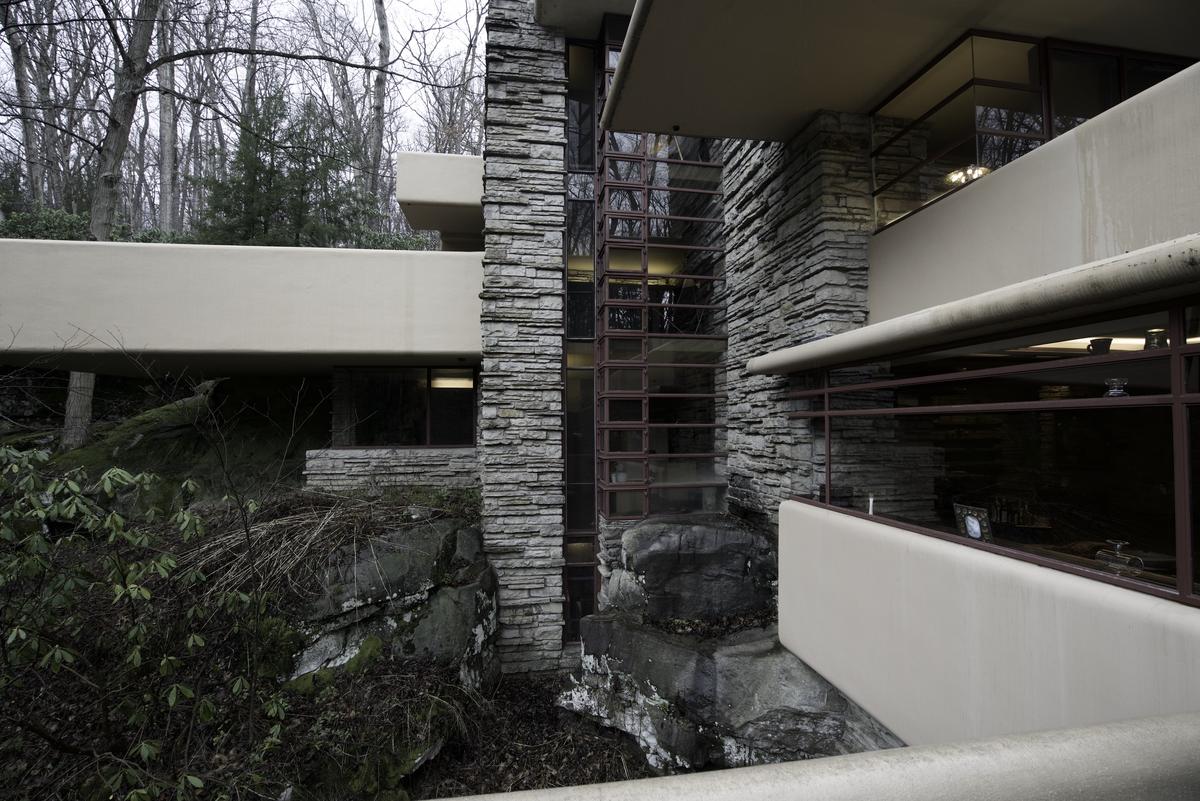
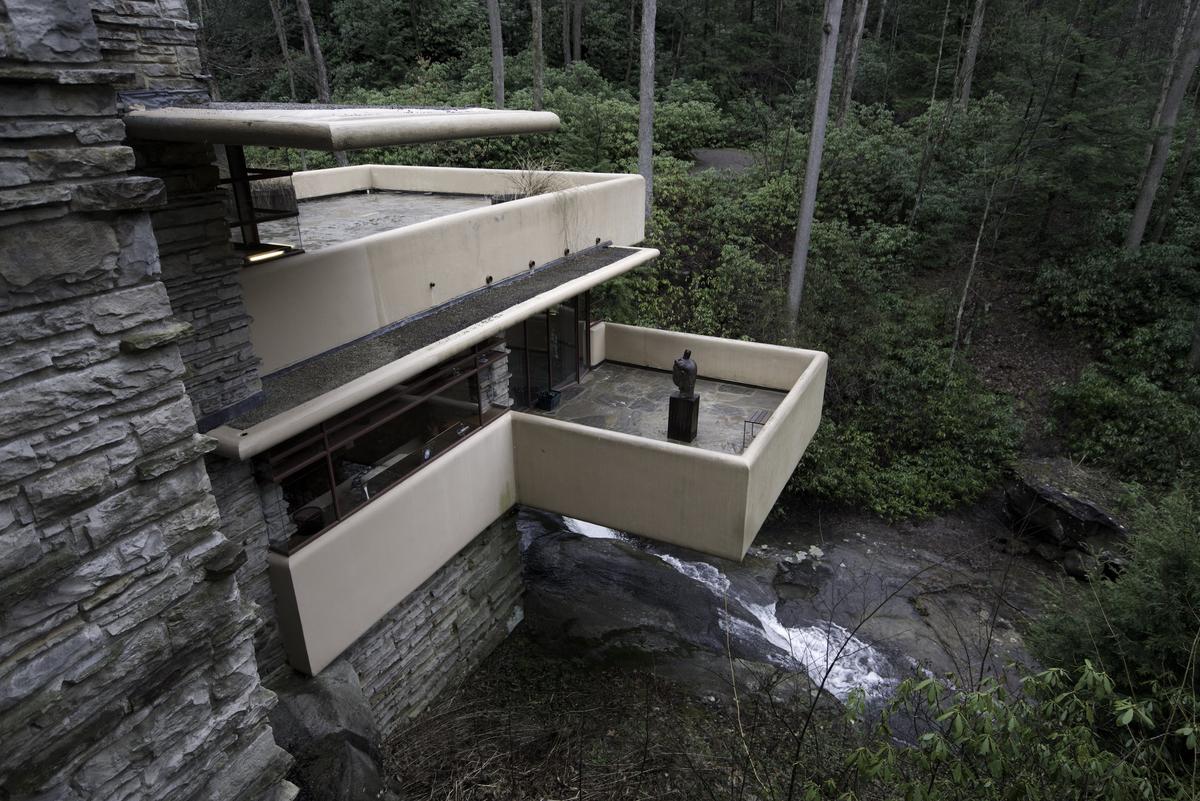
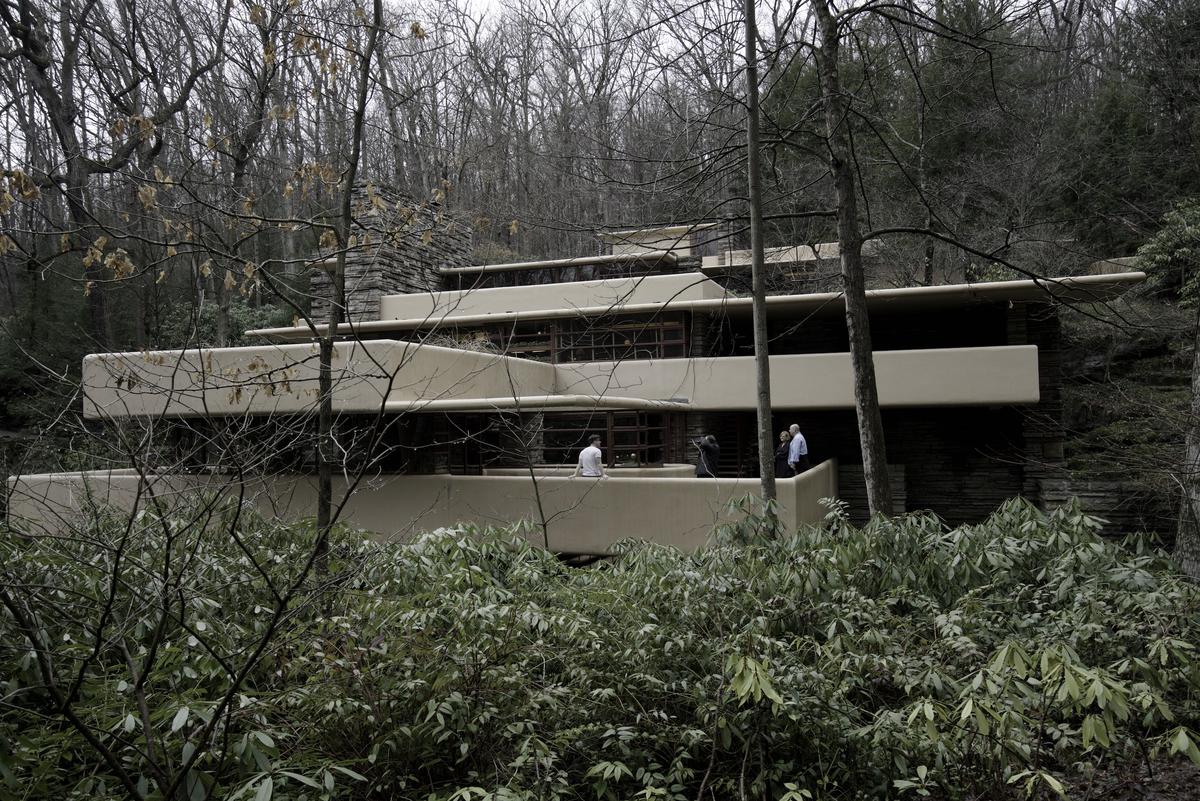
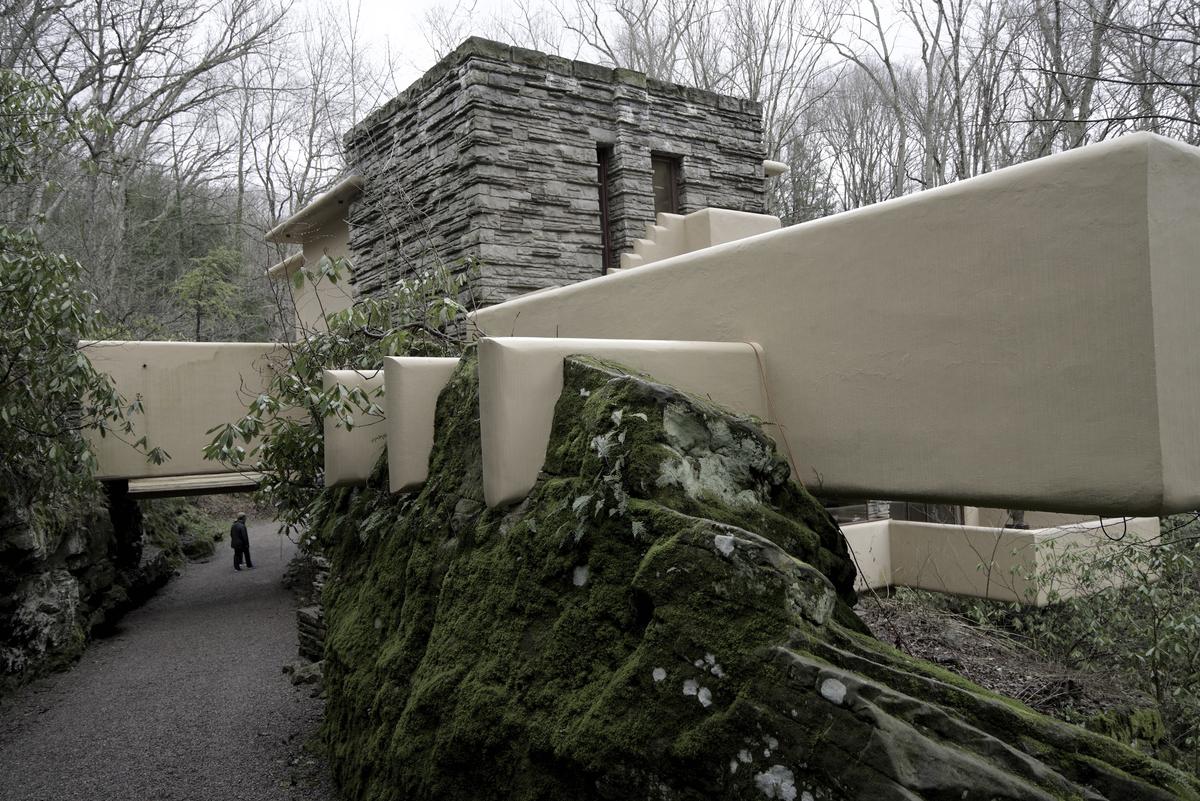
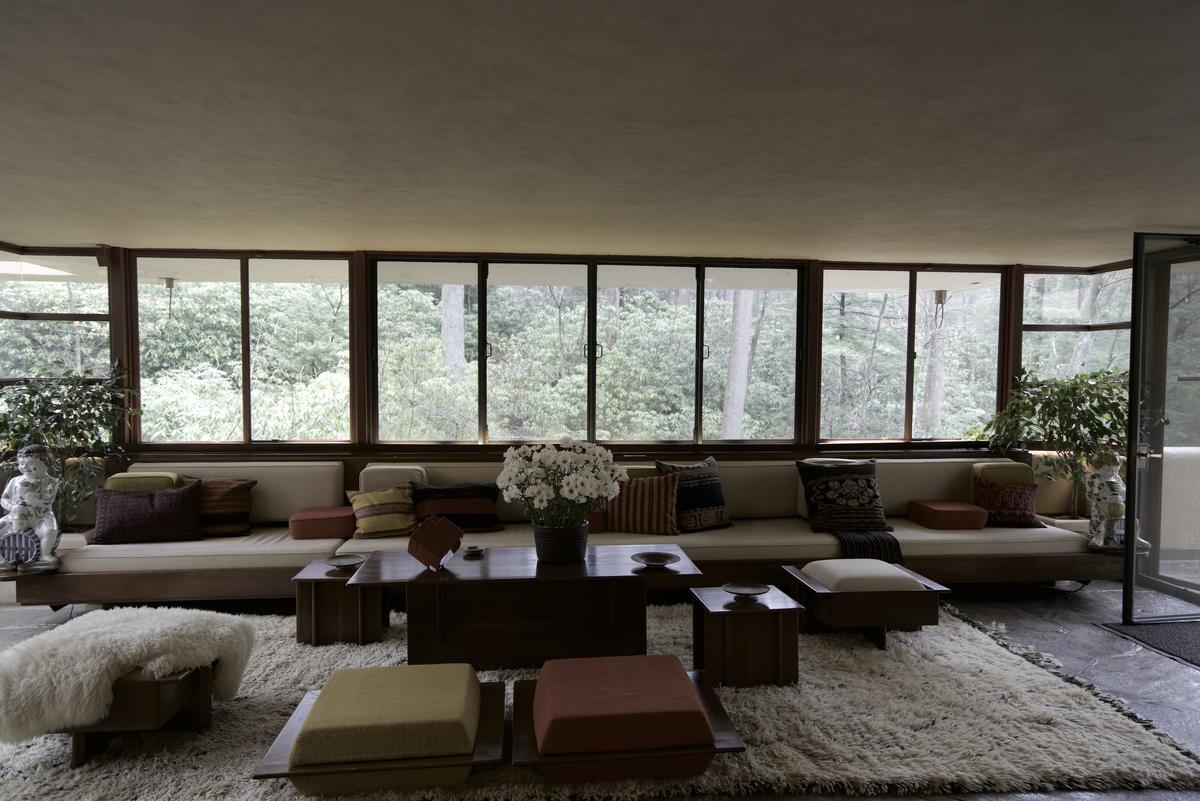
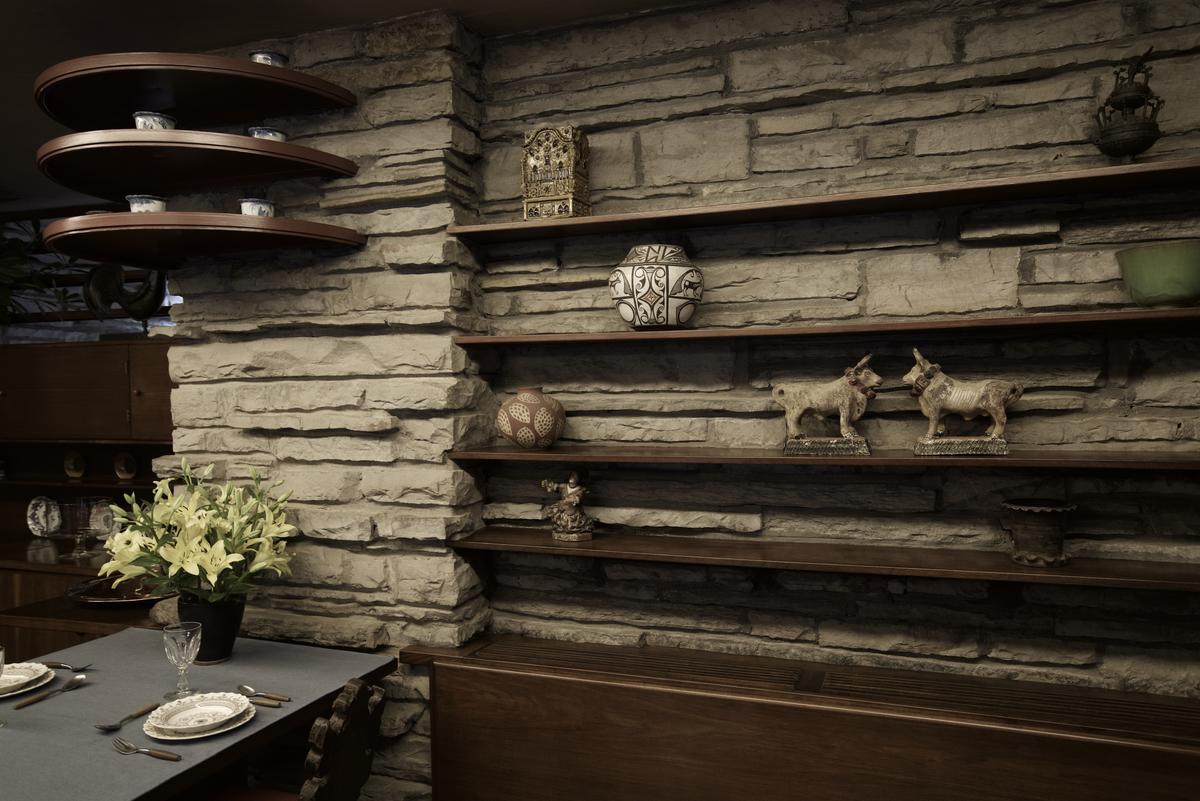
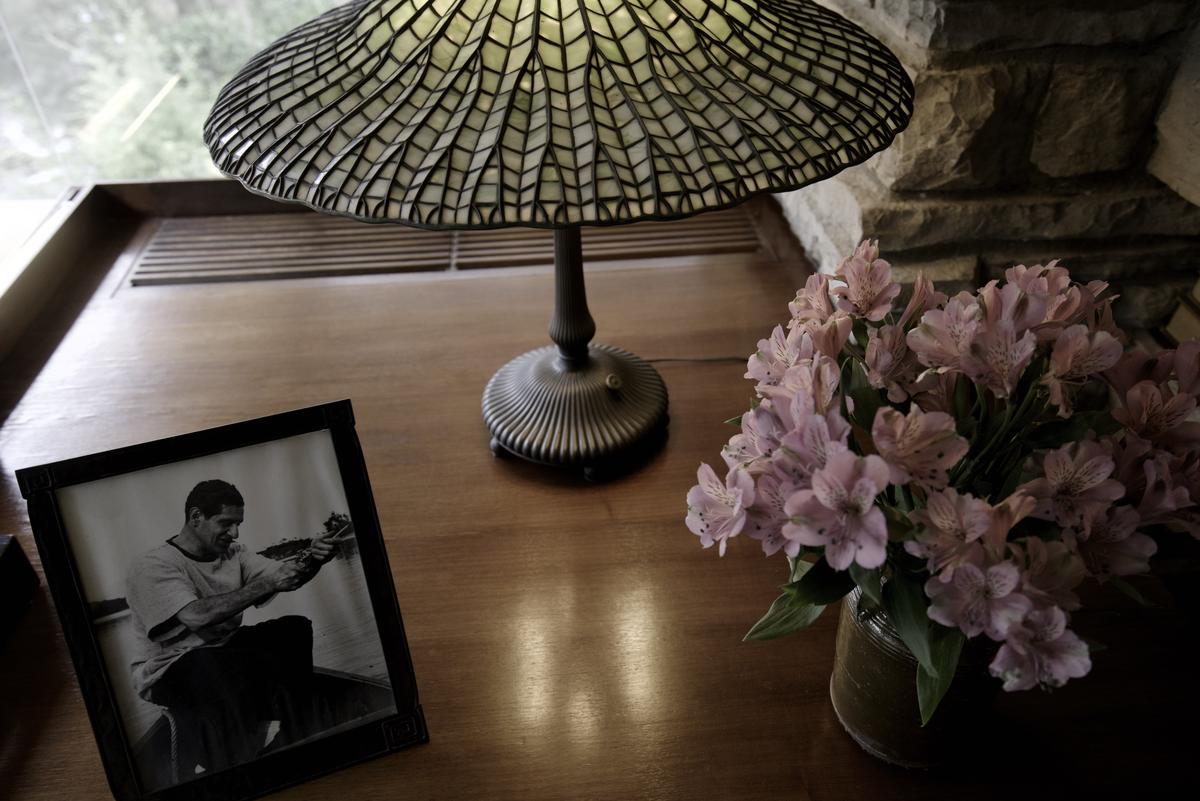
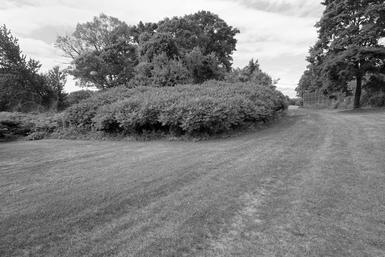
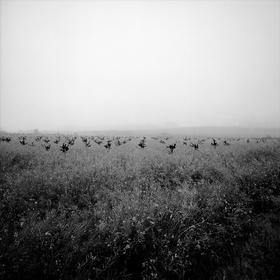
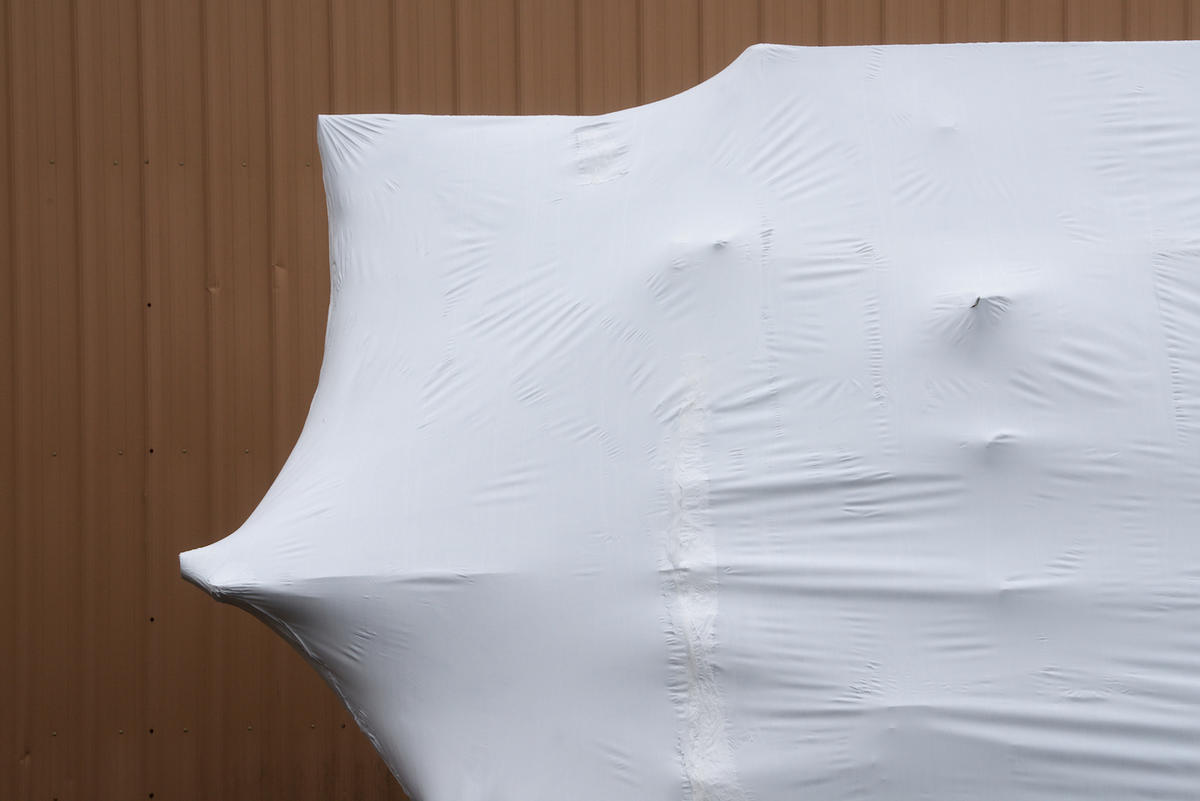
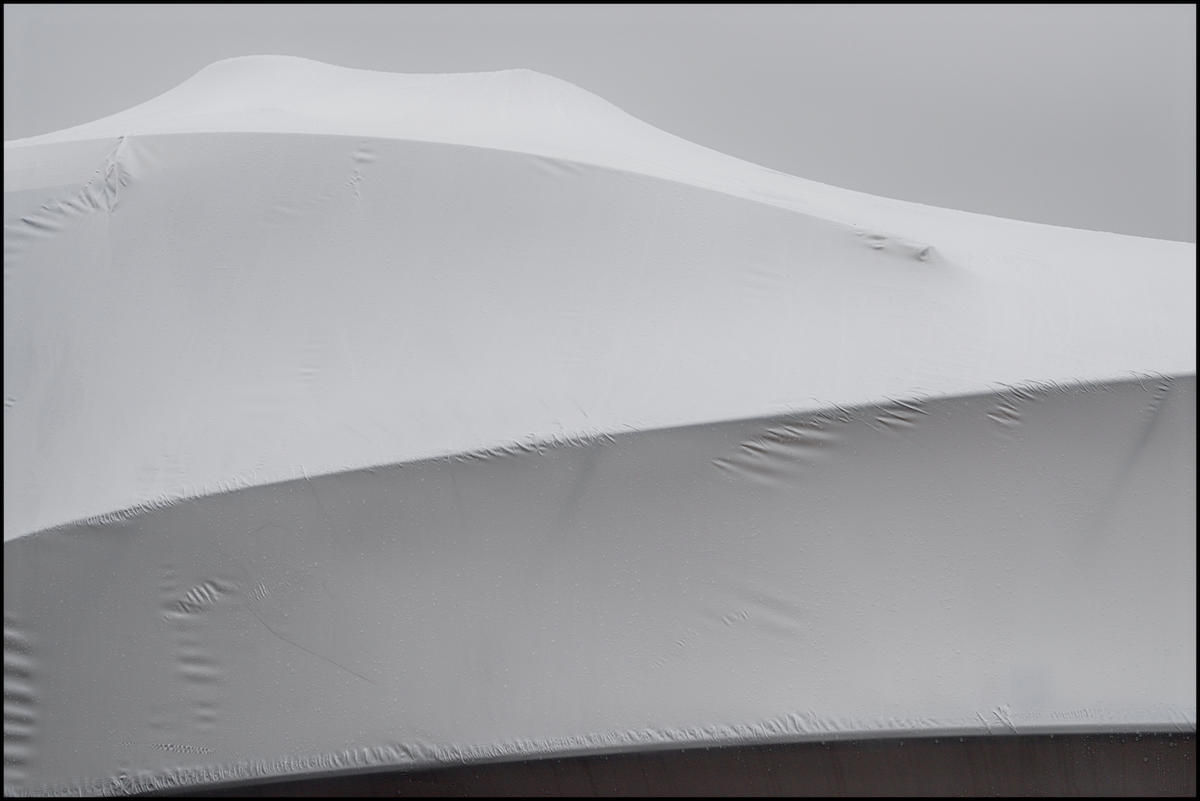
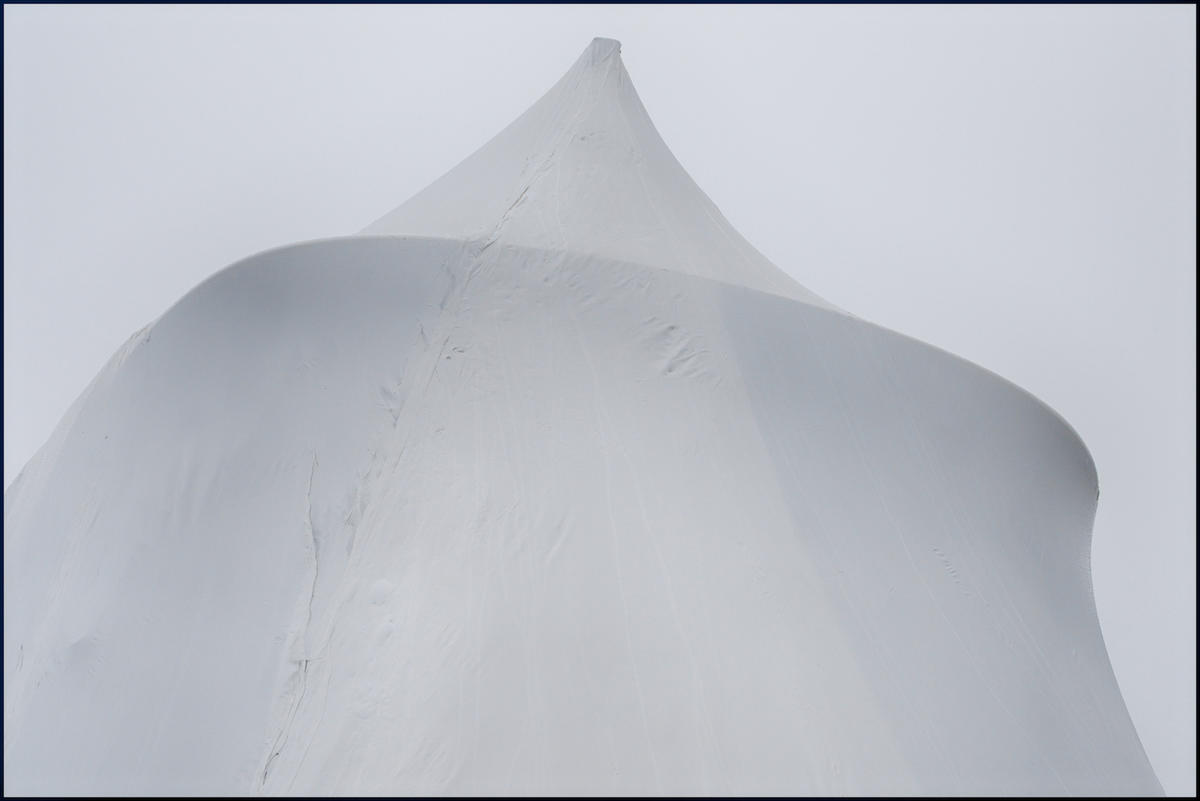
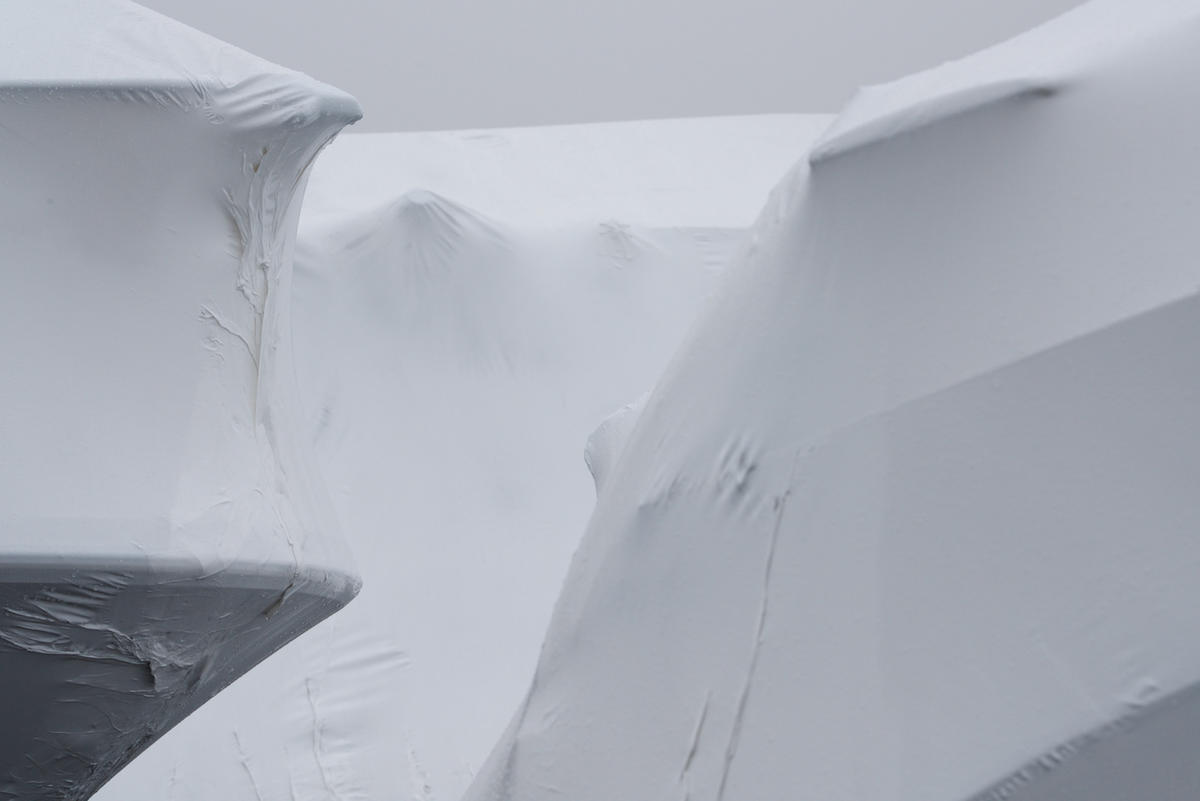
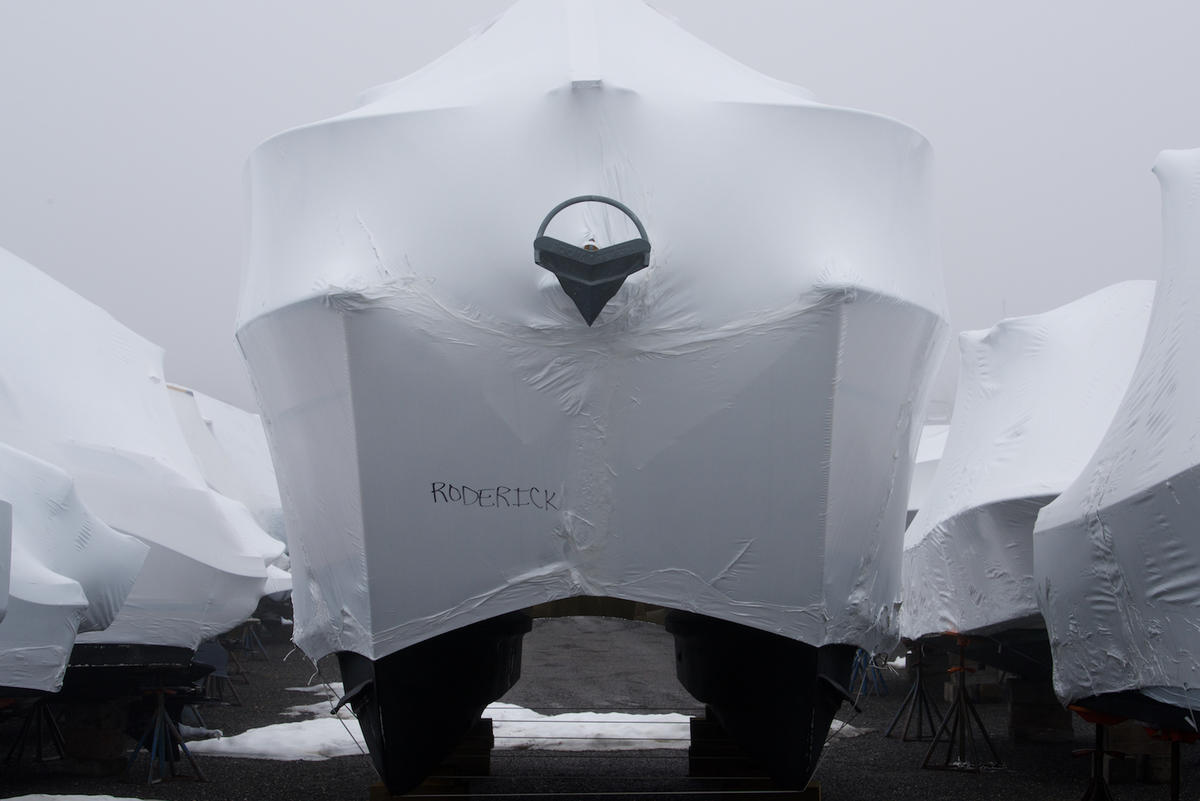

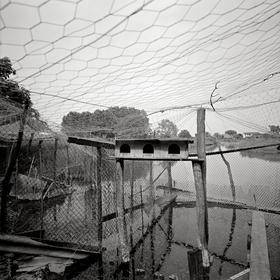
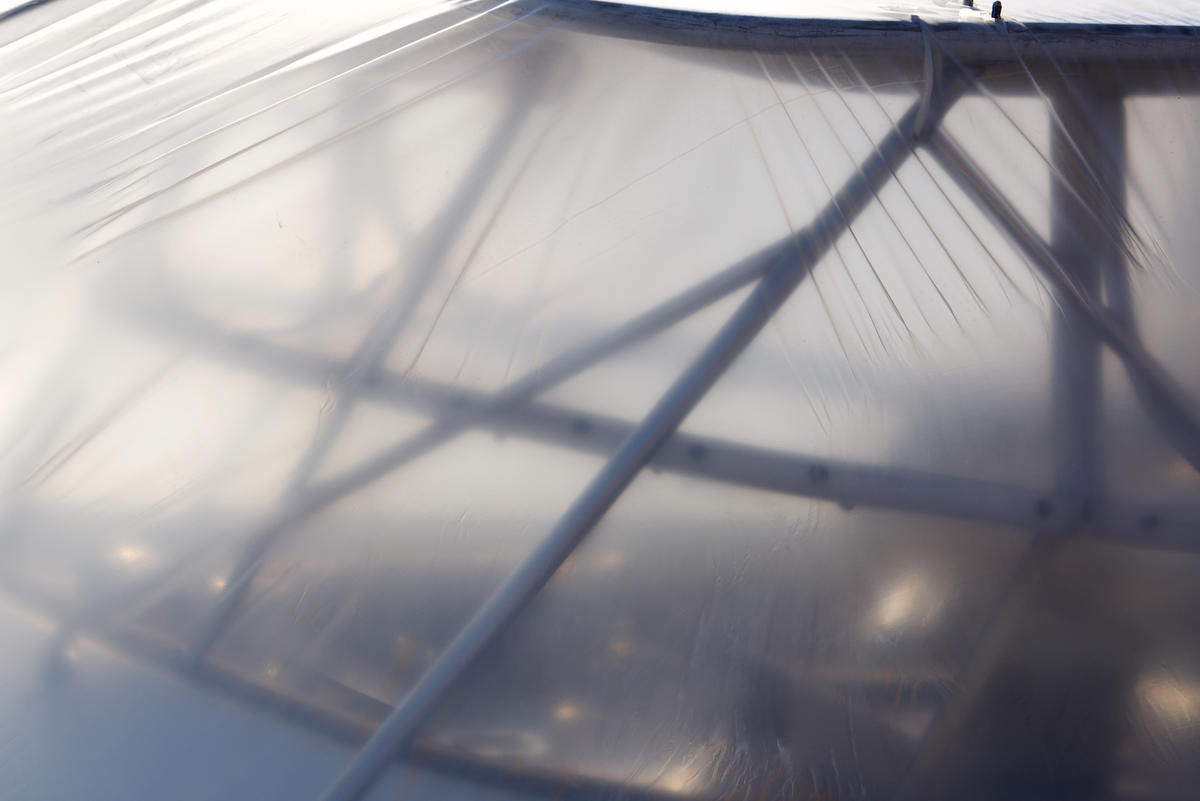
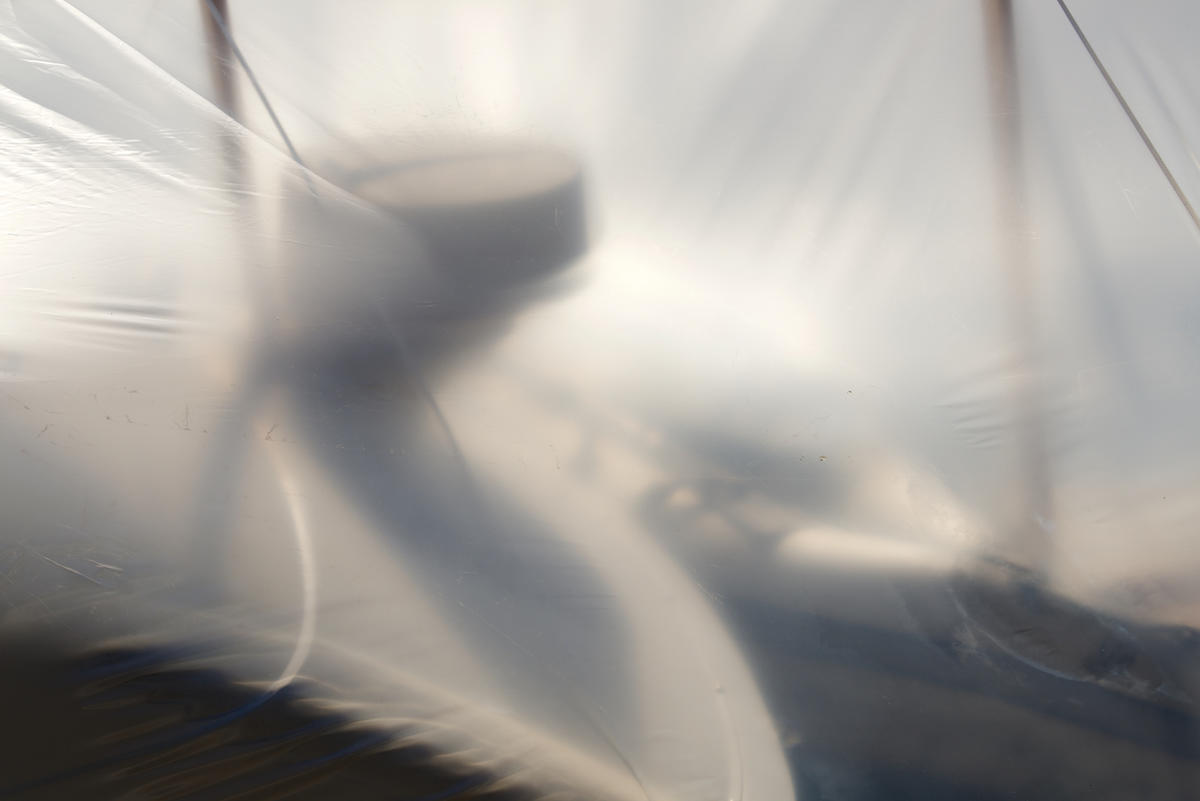
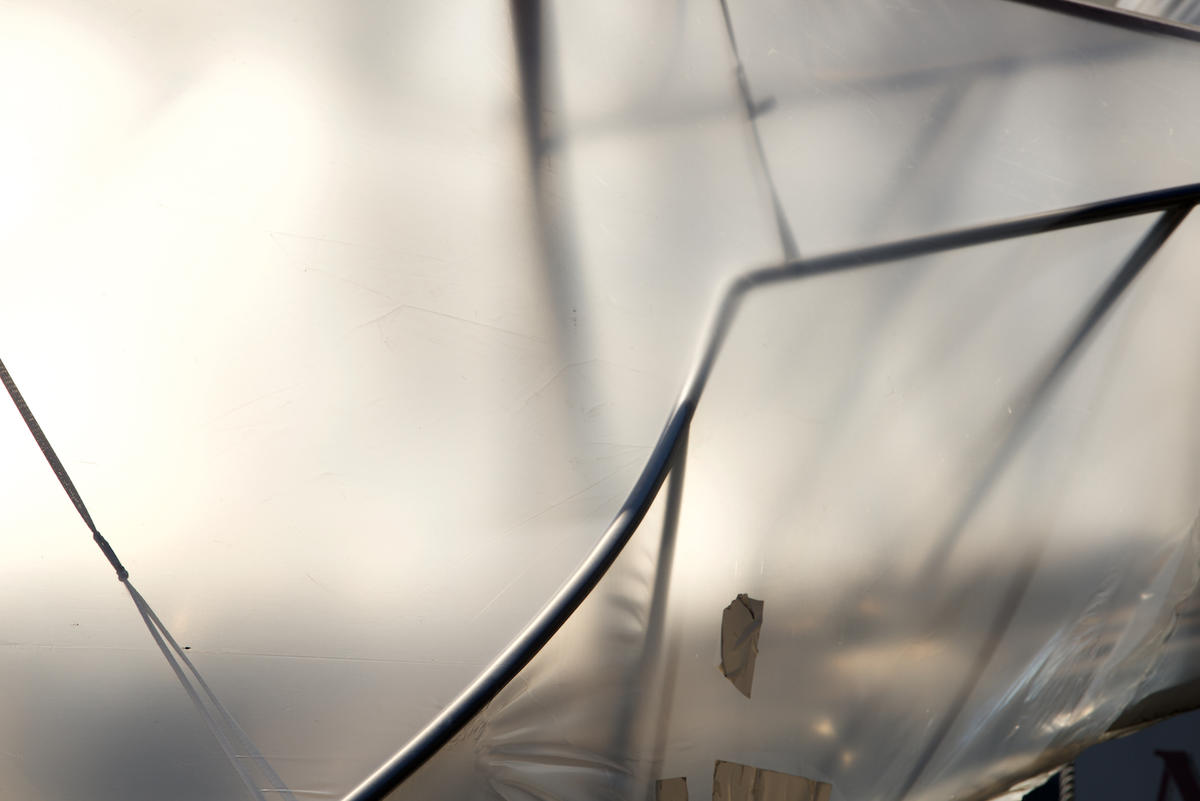
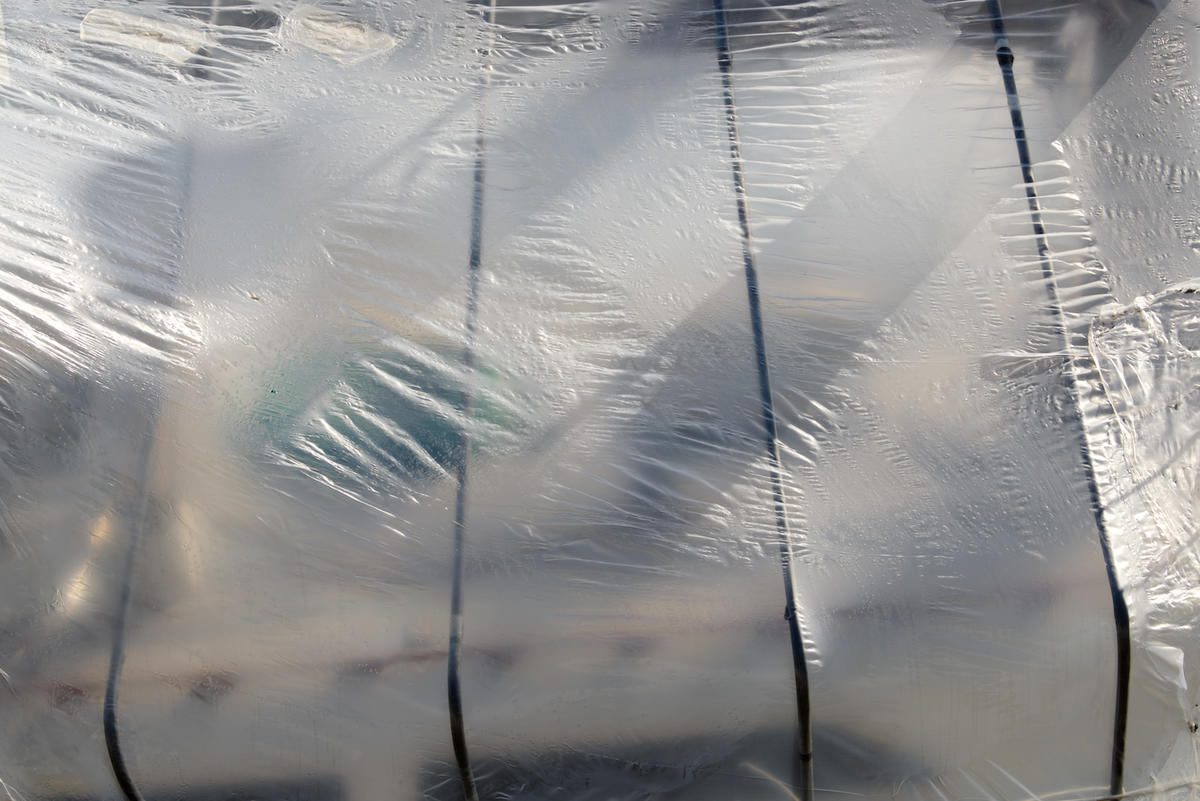
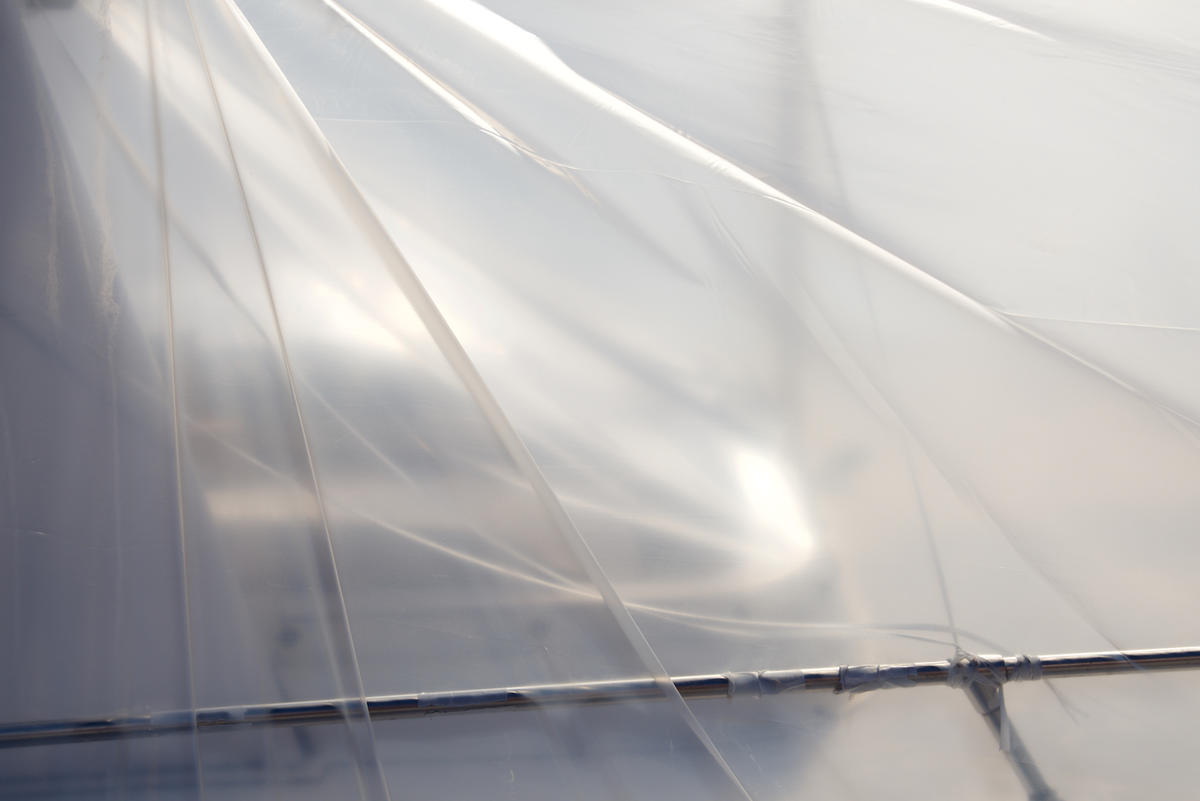

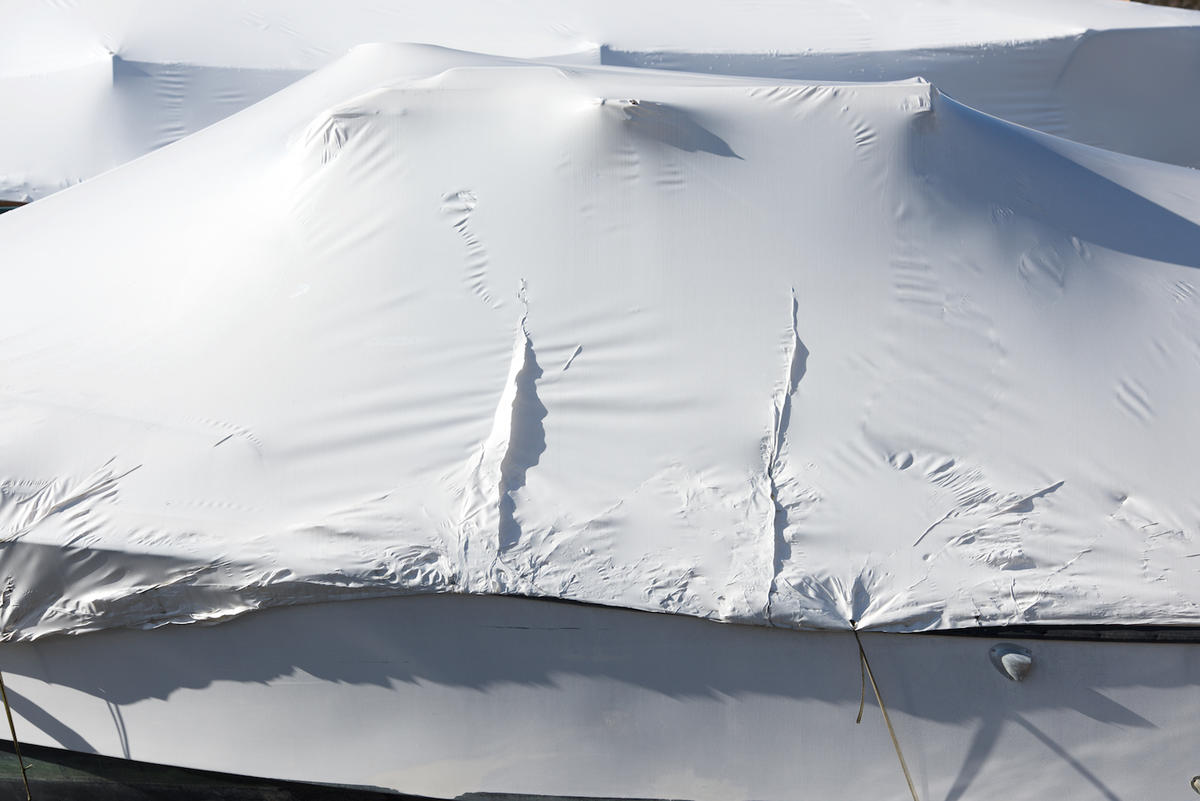
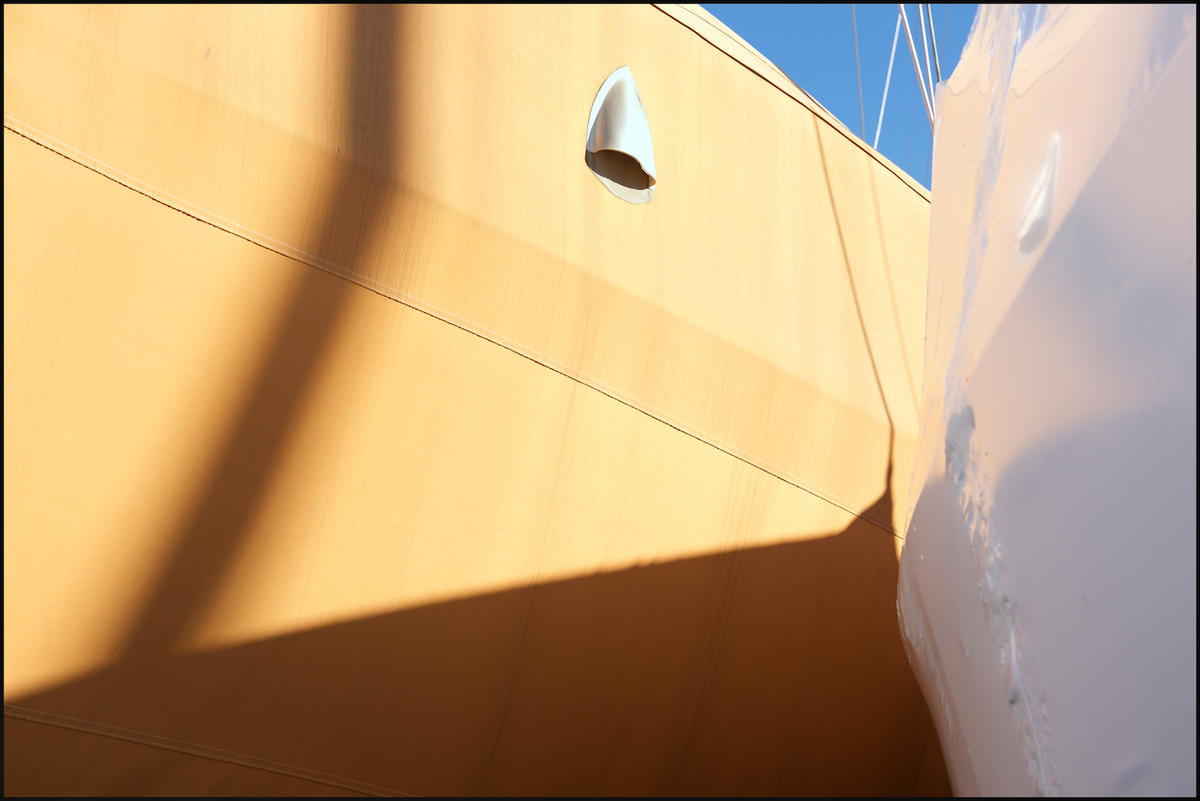
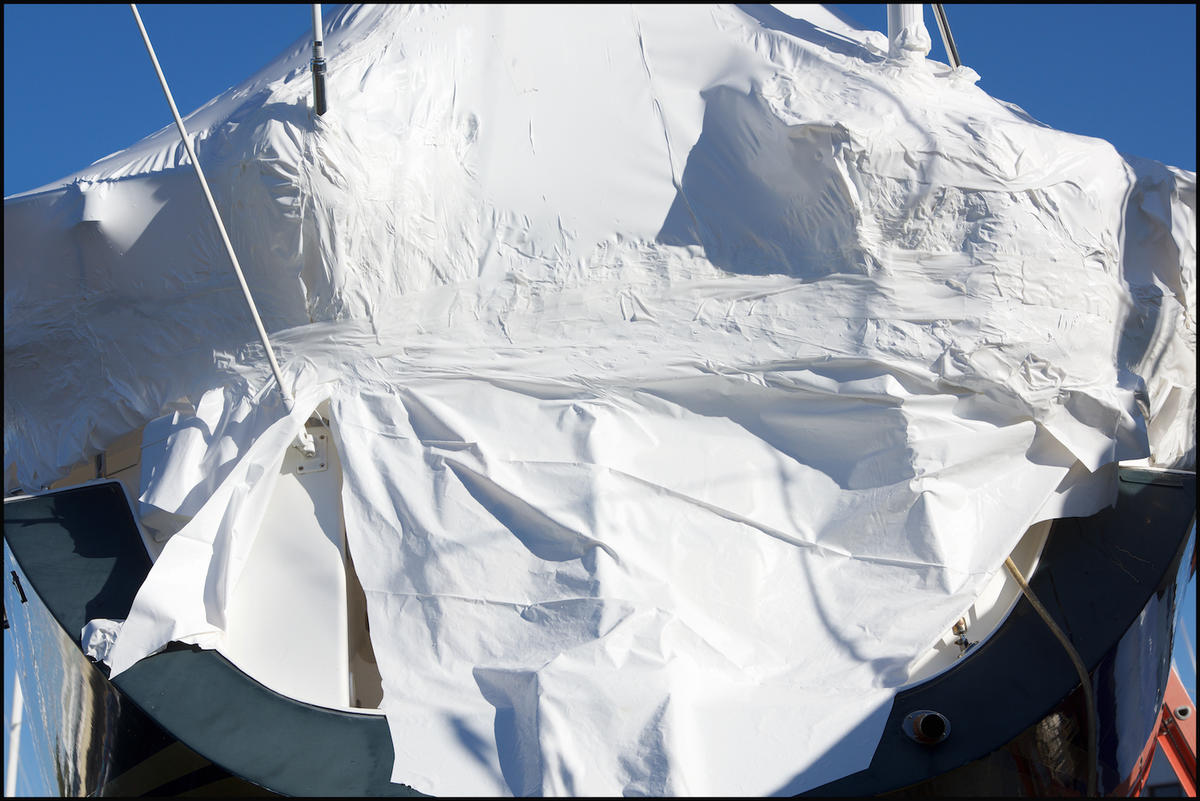
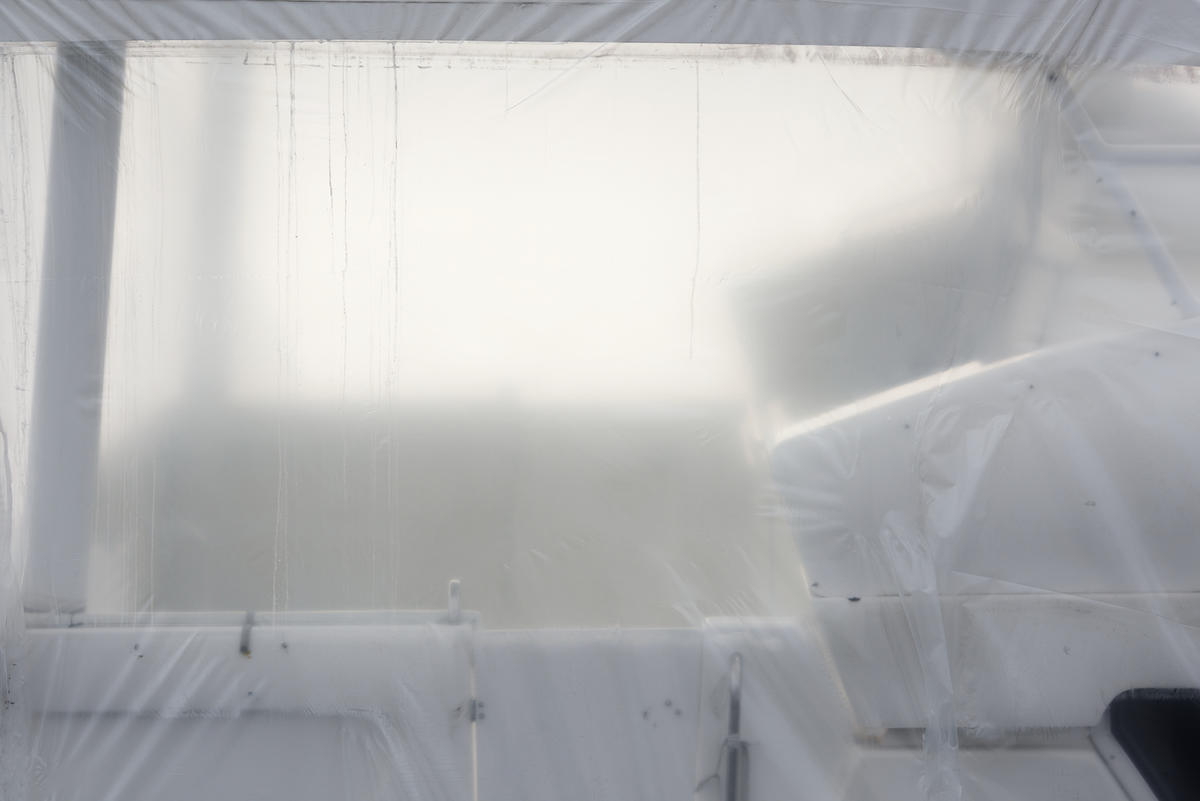
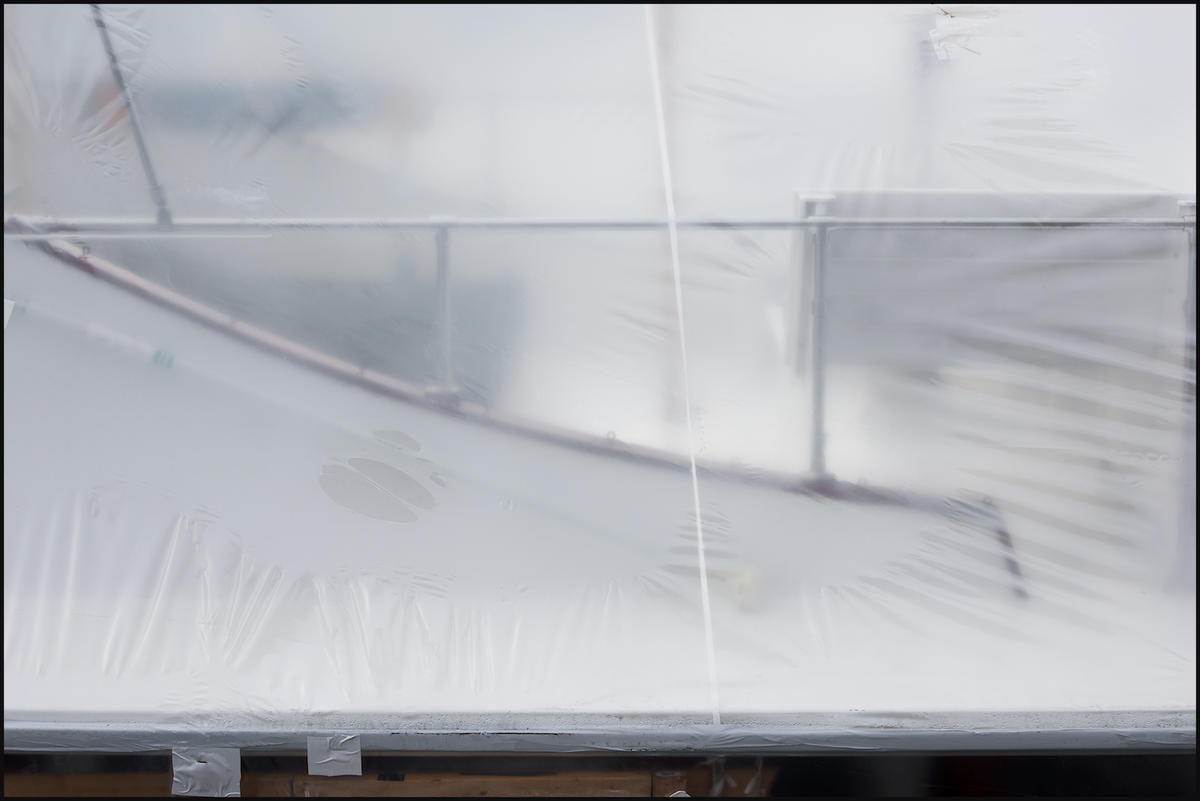
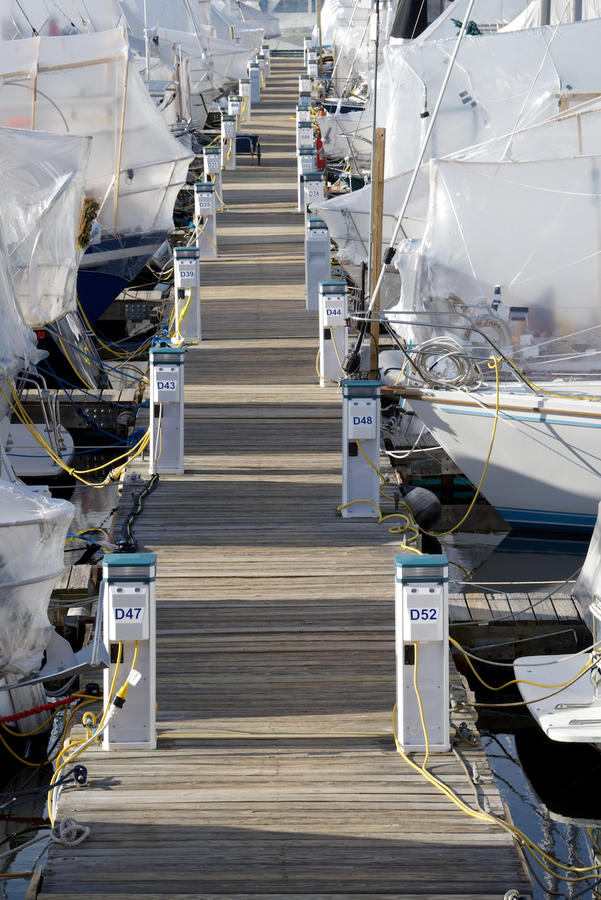
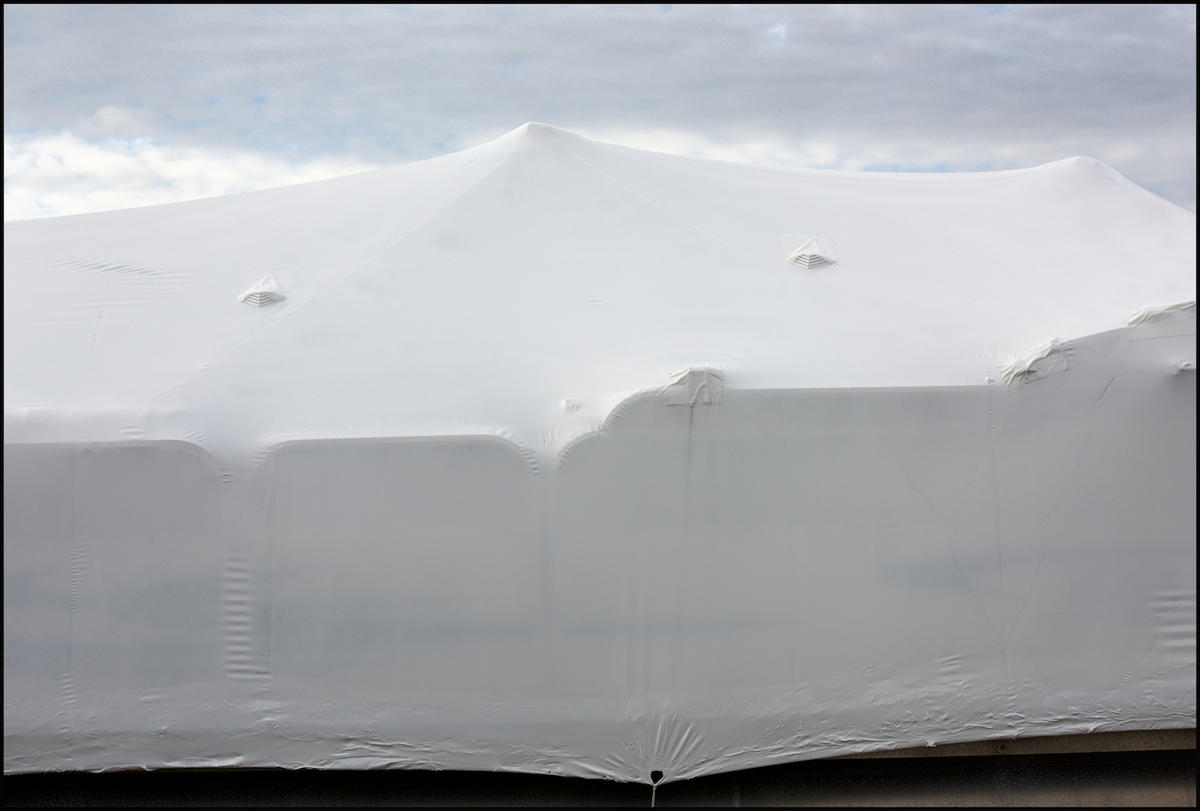 This one above now sits framed in my studio at 55 inches across, for instance. Why so big? Because I have to actually make a big print to know how it will work. And this one does work as it plays with scale so well. This one below is much newer, made in the past couple of weeks but pulls at me as it is very different and obvious but not something I would have paid attention to unless I had the experience of making several hundred other pictures before it. But look how pure it is, just this large form of a wrapped powerboat sitting there on land over the winter. So normal and yet very beautiful, one of those photographs that speak to the essence of things.
This one above now sits framed in my studio at 55 inches across, for instance. Why so big? Because I have to actually make a big print to know how it will work. And this one does work as it plays with scale so well. This one below is much newer, made in the past couple of weeks but pulls at me as it is very different and obvious but not something I would have paid attention to unless I had the experience of making several hundred other pictures before it. But look how pure it is, just this large form of a wrapped powerboat sitting there on land over the winter. So normal and yet very beautiful, one of those photographs that speak to the essence of things. 